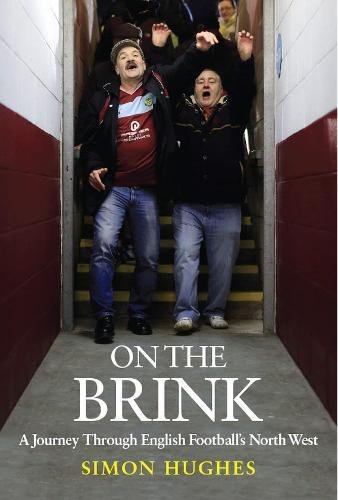
In May 2017, an exciting new football writing festival is coming to London. From Tuesday 16th – Saturday 20th, enjoy five nights of football fun with the likes of Jonathan Wilson, Philippe Auclair, Michael Cox and Anna Kessel. I spoke to Kieran The Organiser (consider his rap name coined) to get the full low-down.
Q1. What are the origins of the festival? Is it being run in association with the Manchester Football Writing Festival?
In late 2016, I was running a bookstall for my work at a tedious academic conference and on the bus back home, I drifted in and out of tiredness-induced reverie. In true cartoon lightbulb fashion, an idea pinged into my brain – a festival of football writing with some writers and authors I want to see in a nice bookshop that also sells cold, delicious beer. I was basically dreaming after being ground down to a husk by 12+ hours at the stuffy, drab, dry conference venue. I slept on it for a couple of days and it remained a great idea. And thus London Festival of Football Writing was born!
It’s not affiliated with Manchester Football Writing Festival but the amazing year-on-year growth of the festival has been an inspiration, showing that there is room for reasonably niche festivals on the literary circus. The MFWF has also been very generous in reaching out, offering solidarity and advice.
Q2. Do you have a specific aim or focus for this festival?
If I’m honest, the aim for this inaugural festival is just to see if it can be done. At the moment, I’m undertaking this without any sponsorship or financial backing but I would be looking to build on this to make next year’s festival bigger and better.
The overarching focus has changed somewhat since I first started putting things together but it still showcases a variety of very fine authors and journalists and that is, above all, the most important thing.
Q3. It’s an amazing line-up of events. Was it difficult to bring together big names like Jonathan Wilson, Philippe Auclair, Rory Smith, Michael Cox and Anna Kessel?
Each and every one of the authors have made putting this together relatively painless. Anthony Clavane, Philippe Auclair and Anna Kessel in particular have been so generous with their time, offering invaluable advice, encouragement and contacts.
I was also touched by the enthusiasm of Barney Ronay, David Goldblatt, Amy Lawrence, Alex Bellos, Heidi Blake and Ronald Reng, who couldn’t make it for this year’s festival.
Q4. Can you pick one of the events that you’re particularly looking forward to?
I couldn’t possibly do that! I’m genuinely excited about all of them. If you pushed me, I’d be tempted to say Anthony Clavane – he’s one of my absolute favourite writers and his recent book, looking at the erosion of working class identity through the prism of sport is arguably his best yet.
Q5. Waterstones Tottenham Court Road is a great location for the festival. It feels like Waterstones are doing more and more to promote sports books. Do you think this is a particularly rich period for football literature?
Waterstones Tottenham Court Road is possibly my favourite bookshop in London, even though it’s only been open for less than 18 months. It’s got bags of character and its events programme is unparalleled in its variety and the big names it pulls in. The event space is so atmospheric too, a real rarity.
The fact that Waterstones has its own dedicated sports books Twitter page (@wstonessport) is probably more down to the passion of the person in the company who manages it.
I would say the last ten years has seen football writing flourish, and you could probably trace it back to the release of Jonathan Wilson’s Inverting the Pyramid and the advent of blogs. Now, it is a genre where literary, cerebral books on football fit nicely alongside the big-name biographies and publications like The Blizzard, Nutmeg and Mundial are pushing it into different directions, offering the opportunity for unpublished writers to get their work in print where previously that door would have been firmly shut.
Q6. The literary world tends to exclude or marginalise sports writing. Do you think that’s why the genre needs its own separate festivals like this?
Yes, I think there is an embedded elitism from the literary establishment regarding football writing and maybe that won’t change. Despite the millions going to football each week, football writing may always be a niche interest. You’ll always have the big-name biographies published for Christmas and maybe one or two books that cross over into the mainstream.
I don’t think that’s necessarily a problem though – there’s definitely an appetite for intelligent football writing and people are savvy enough to seek these oout outside of the mainstream, through independent publishers, social media, blogs and word-of-mouth.
The success of Manchester Football Writing Festival and, hopefully, London Festival of Football Writing, is a celebration of this and it shows how comfortable the genre is existing separately on its own terms.
Q7. Finally, give us your best 140-character pitch for football fans who are thinking about attending.
LFFW brings together some of the best names in football writing for five nights of analysis, humour and insight on the beautiful game!
For event listings, tickets and more info, visit the London Festival of Football Writing website






